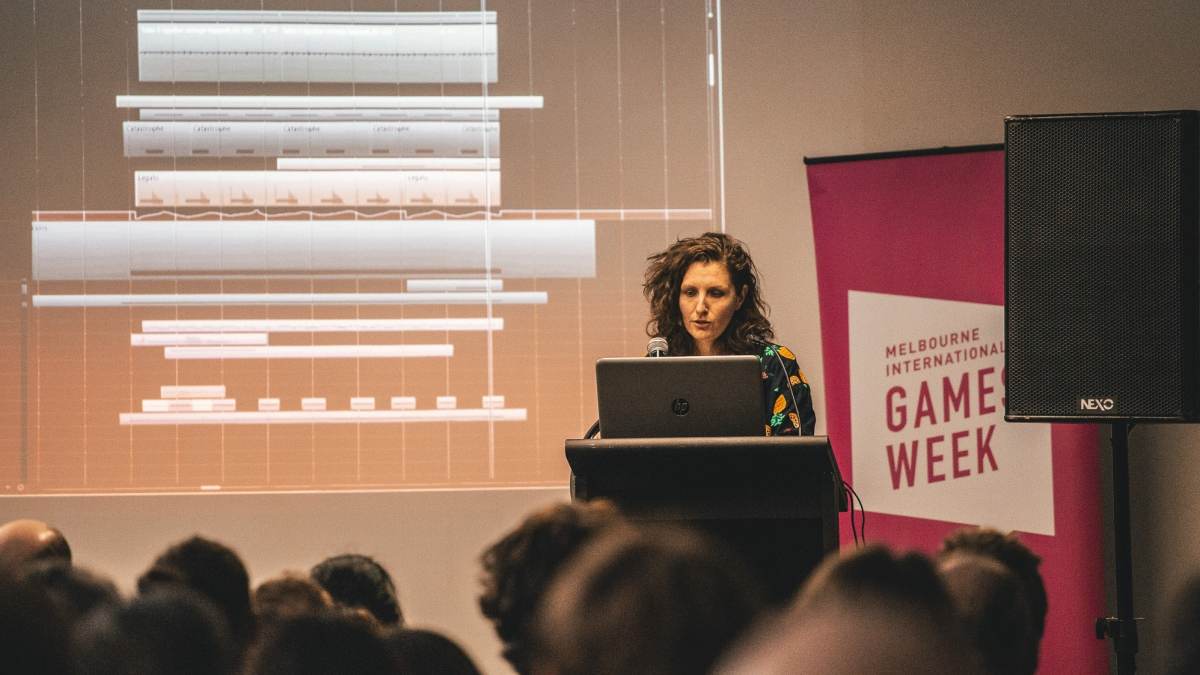High Score, Australia’s annual conference for game audio and music, is for everyone – including established games professionals, composers and sound designers – as well as the sound-curious.
As per the great tradition of naming game things, ‘High Score’ is a play on words. In games, a high score is aspirational, whether the goal is to achieve some distinguishable benchmark, or to simply measure your own performance. In music, a score is (at least, part of) how the intent and meaning of your work is communicated to others.
High Score is also a good name for the conference because it alludes to professional growth, and the sharing of ideas. This year’s theme, ‘building from the ground up,’ encourages reflection about the grassroots methods by which people collaborate and support each other.
In the lead up to the conference, GamesHub had conversations with conference speakers who are working at the intersections of music and design. They discussed the importance of community, confidence, fun, and the value of the unique, musical ideas that make individual practitioners most special.
APRA AMCOS is providing GamesHub readers with the opportunity to attend the High Score conference, with complementary tickets (2x In-Person tickets and 2x Live Stream tickets) to give away. Enter via the competition page, or at the bottom of the article. Winners will be notified on 30 September 2022.
Danna Yun
At High Score 2022, Danna Yun is speaking on a panel titled, ‘From Screen to Stage: Game Music in Concert’. After attending the conference in 2019, Danna is now fulfilling her dream of writing music for video games.
In our interview, Danna highlighted how a friendly, wholesome vibe in games led to a desire to ‘rediscover what she loved about music’, and create music that was simpler to enjoy.
GamesHub: How did attending the High Score conference lead to you composing for games?
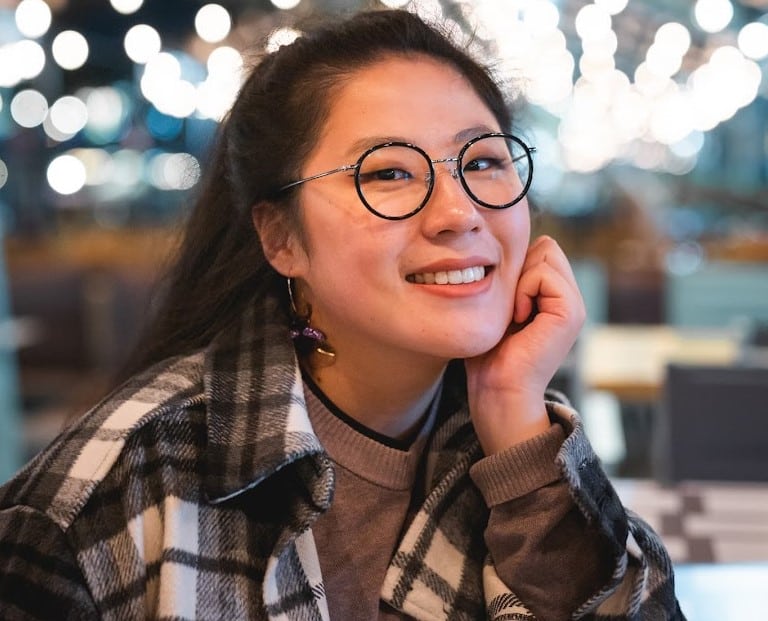
Dana Yun: ‘Before I got involved in games, I had the preconception that you had to move to the US to try your hand at it. But I learned a lot about the indie space through the High Score conference, and that Melbourne is a hotspot for game development. That motivated me. If it was all so close, I wanted to find people to work with here.’
‘Takahiro Ituzani and Manami Matsumae were amazing speakers at High Score 2019. They shared insight into how composing in the games industry can be more fun than in the film industry, which can be competitive and client-focused. Everything I’ve experienced so far in games is that I’m making music as part of the team. I belong with this team of people and we work together.’
‘I’m working with Pink Clouds, a new studio making Letters to Arralla and, at one point, Chantel, the director, said, “Danna, you design the music for our game. That makes you a dev too.”’
‘I’d thought that I’d need to upskill – learn to code, learn skills for implementation, or sound design, or upgrade my gear in order to start getting gigs. There’s a notion that indie game devs want one audio person. But I started getting gigs with developers who just wanted music, and it took off just from that. I was actually really surprised.’
What are the main differences between concert music and music intended for a game?
‘One main difference is the audience, and what they want from your experience. People would go to a concert for a different reason to why they would play a game. Even between concerts, different target audiences want different things depending on genre, location, program, franchise etc. With concerts, one question is how to make the experience memorable, but the guidelines you arrange within can vary depending on the intention of the concert.’
‘For Sinister Creative’s Sound Byte indie games showcase, we placed utmost importance on respecting the composers and authentically representing these beautiful Australian works, on stage. By contrast, we are working on Super Effective! now, the upcoming Pokémon concert, where we are trying to create spectacular energy, bring the fandom together, and to celebrate the creativity of Aussie VGM arrangers, with some innovation on the original music. There are some conditions, like the melody has to be recognisable at some point, but also more freedom in how the arrangers can interpret and reimagine the soundtrack for the musicians to perform.’
‘All of this is very context heavy. When you’re making music for a game, you’re part of the game’s design. For narrative driven games, you have to be able to understand and bring out the emotive qualities that the developers want. There’s also a lot of production involved with composing for videogames, beyond engraving, working in DAWs, and so on.’
What has working on Spiritwell been like?
Spritwell is a narrative driven RPG adventure about a boy who falls into a well and arrives in a world filled with spirits.
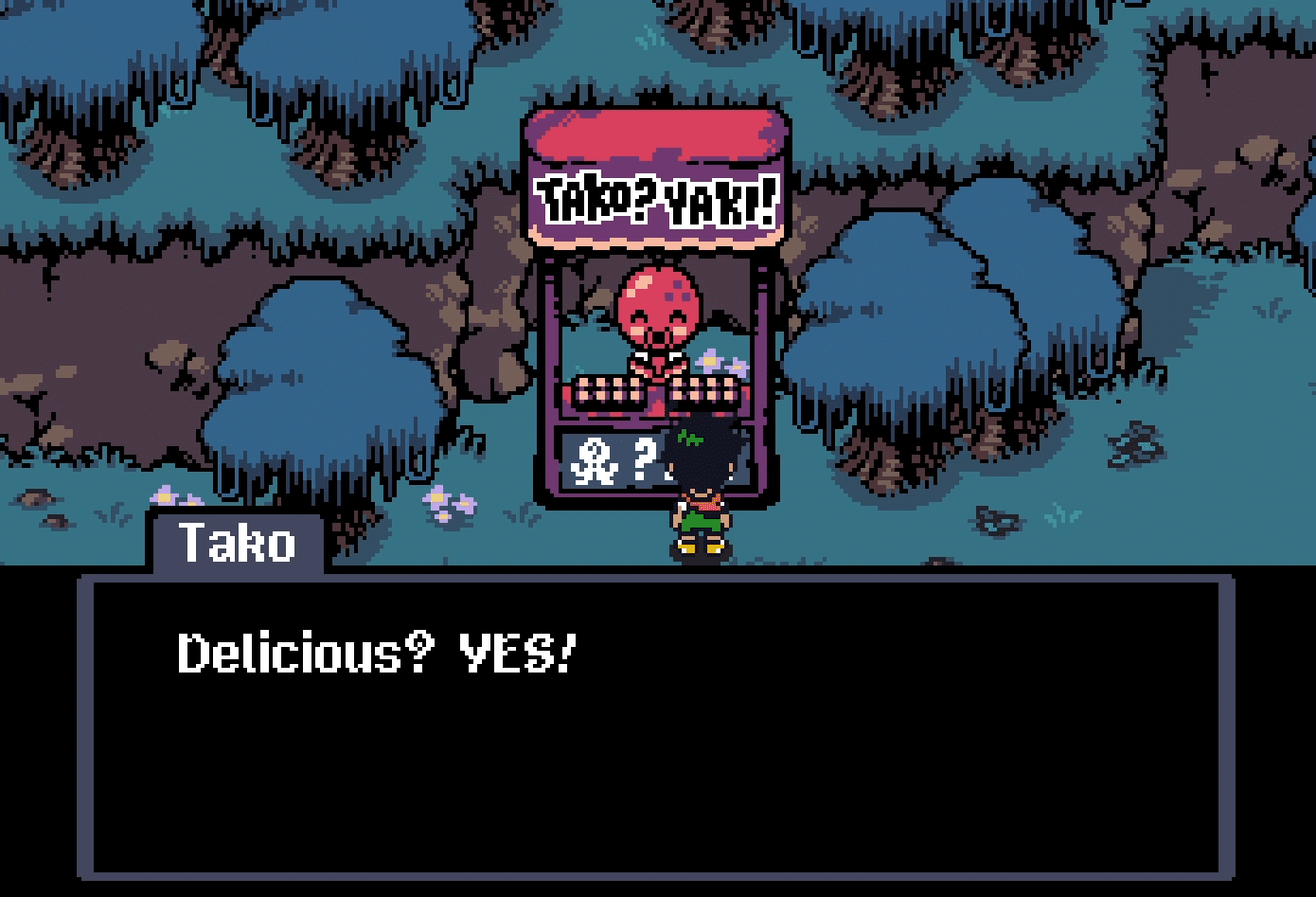
There was a lot to work on. At the beginning my music was not the perfect fit. It took months of discussion, experimentation, and unconditioning myself from the learned idea that music has to be complex to be impressive. I was making music that was so intricately textured, everything was filled up, it was sparkly and glimmery and the ideas used to go beyond what the game needed.
Then, I started building in the right direction, with simple melodies and textures. From a creative point of view, I had to relearn to walk, before sprinting, and that really helped me to enjoy making music just for what it is again, and not trying to be so impressive, just to make music that speaks to people.
The sound of Spiritwell draws inspiration from music the team loves, including music from some retro games,
What Spiritwell reminded me is that at the core of making music is enjoying the process. I lost that enjoyment when I had once put too much of my identity into it. It became ego related and I burnt out at the end of my degree, trying to achieve perfection. After a year’s break from music, I started to get starry-eyed again. I want to try things, and it’s a mindset shift, not a skills shift. My most recent insight is, do ‘simplicity’ very well and it will be beautiful, it will be masterful in its own right.
Listen to the Spiritwell soundtrack and catch ‘From Screen to Stage: Game Music in Concert’ at the High Score conference on Sunday 2 October 2022 at 2.50 pm AEDT.
Jacob Leaney
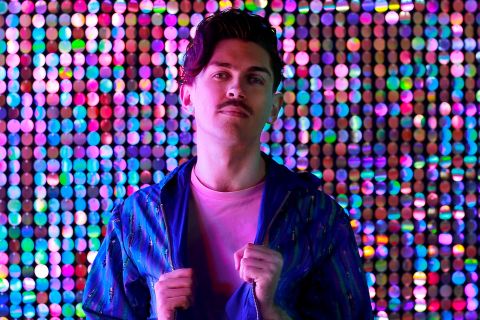
The ‘DIY: Musicians Make Games’ panel at the High Score conference asks, ‘What can musicians take from game design to create new interactive and immersive experiences, both within the traditional games space, and outside?’
One speaker on this panel, Jacob Leaney, is working at the intersection of songwriting and game design. Human Rights, one of his earlier experiments, explores the idea of interactivity in a (near) music video format. The song simply unfolds alongside lightly puzzlesome items, and touchable lyrics in text. Grabbing for words like ‘angry’, ‘confused’ and ‘tidal wave’ draws the listener into the experience. It’s surprisingly evocative.
When GamesHub caught up with Jacob for an interview, he revealed that he’s also working on something new.
GamesHub: So what is this new experience, A Halloween Valentine, all about?
Jacob Leany: ‘The antagonist has broken your music. Each level has a pop song and it starts as just the backing track, but then you collect lyrics as you progress.’
‘The idea came from songwriting sessions, in collaboration with others, last year. The lyrics started telling a story about my personal life and relationships. Through speaking about the work, the theme of “vulnerability” came up a lot. Some people are too vulnerable, too quickly. For others, it’s difficult to be vulnerable. My own experience was of becoming more scared to be vulnerable.’

‘Love inspired the Valentine part. Vulnerability is really scary, so I wondered how I could tell a story about this. Being a fan of comical game design, I felt that the ideas of “Halloween” and “Valentine” played off each other really well.’
‘The main character is afraid to be vulnerable, then he goes on a spooky Halloween adventure. After he’s been through all of this scary stuff he’s like, “Well, maybe it’s not so scary to just say how I feel.”’
Do songs, games and interactive experiences have to exist separately? Or can we blur these lines?
‘People understand a particular form of media. I think an experience needs to be familiar. For music to change and become more of an immersive medium, it may require time.’
‘Particularly with commercial, pop music, the experience is also about the artist. When you start roleplaying, as a character in a video game, it’s very different to idolising someone. I think music would be quite different if we didn’t idolise the artists behind it.’
So what ideas, from games and game development, have you integrated into your practice?
‘Iteration is something I’ve definitely taken from game development. Music has always been an iterative process for me, but since I started developing games, I know I’ll always be able to come up with an idea and find the right thing to do next, it just takes time and workshopping.’
‘It gave me more confidence to say, “That’s fine, I’ll iterate on this,” rather than relying on a magical burst of inspiration. Creativity is hard work.’
‘When I have a songwriting session, I’ll also often present collaborators with a pre-existing idea and allow others to bring their ideas in a way that will propel the work forward, being open to that.’
What makes you confident enough to share your work, learn and grow?
‘If your taste is higher than your skill level, that can really hit your confidence. Even if you think that nothing you make is good enough, or you don’t feel proud to share it, there will be people in your life who will champion what you’re doing. Finding people who are interested in the same ideas, have the same creative values and can be mentors has been really important for me, including Film Victoria, who encouraged me to apply for funding.’
‘It’s also important to have faith in your creative process. You could write five bad songs, then one good one. You could make five bad games, then one good one, as I did before Human Rights. If you keep iterating it will get better.’
If a composer wants to make games, where should they begin?
‘I learned a lot by going to game jams and teaming up with programmers. I love surrounding myself with people who are better than me.’
‘And, I would mention the idea of leaning into your niche. If there’s something weird or different about you, don’t see it as a weakness. I thought for a long time that loving games and music and other things were a weakness because I wasn’t a master at any of them. I was given advice that all of these things were actually probably what made me special. Understanding that was a huge turning point for me.’
If you’re a composer or songwriter who wants to be inspired by games and game design, the ‘DIY: Musicians Make Games’ panel, taking place at the High Score conference on Saturday 1 October 2022 at 2.30 pm AEDT, promises insight and inspiration, alongside like-minded community.
Scott Reismanis
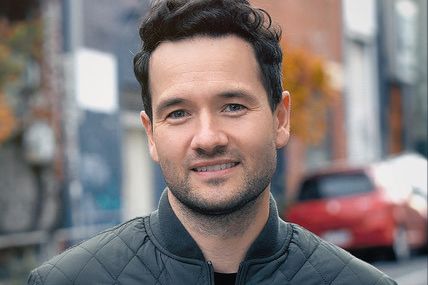
Scott Reismanis is the founder of mod.io, a cross-platform service for game studios to enable the distribution of user-generated content, and a spin-off from moddb.com. He has witnessed the sharing of a great many successful mods, including audio mods, and brings suggestions for how sound designers and composers might present their modded content as part of a comprehensive and detailed professional portfolio.
In his interview, Scott told us that modding has never been more accessible for creators and players alike. It’s time to get involved.
GamesHub: What exactly is mod.io?
Scott Reismanis: ‘It started with moddb.com, which is a site representing hundreds of games, thousands of mods, and reached by five million players monthly over twenty years. I founded moddb.com because I loved modding and the community, and playing modded content. Mod.io is an evolution, and the difference is that mod.io is about official, integrated, in-game communities. We work in partnership with game studios and provide them with technology to put inside their game to make it easy for users to explore user-generated content.’
‘For players, this means that you don’t need to be an expert to install mods. Because it’s integrated, mods can be created and consumed on console and mobile platforms, too. By working with studios, we can also engage with creator events and metrics, encouraging studios to invest more heavily in modding.’
How many people are making and playing mods via mod.io?
‘Huge numbers. The top games on mod.io have over a hundred thousand pieces of content downloaded daily, which is quite extraordinary. The number of creators depends on the game. For some games, the process is very accessible and anyone can participate. For other games it’s more technical and requires comprehensive skills, maybe audio and graphical engineers, or programmers. In this case, a game may have only a few thousand mods, but this content can be very popular.’
Since mod.io started in 2017, we have over 10 million users and 450 million downloads. This is in addition to mod.db’s (more than) half a billion downloads.
What kinds of games are people making audio mods for?
‘Music and sound mods typically include environmental, sound effects and songs. You’ve got your obvious games, like Beat Saber, where people remix songs and provide different challenges for the player.’
‘Then you’ve got titles like Skyrim, where people want their dragon to make a different sound. Usually, sound effects are very interactive, character based.’
‘The best audio mods I’ve seen are where the timing is just poetic. They’re the sort of mods that can go viral. Maybe there’s an intense scene in the game, and suddenly the beat changes in a way that transforms the atmosphere. Modders push boundaries and explore ideas. Where the game may be following a particular formula, they’ve changed something that can catch you off guard and bring a smile to your face.’
Do musicians usually have to work more within a game’s established structures?
‘Every game is a bit different. One challenge with modding is that there’s never been a universally agreed-upon standard for structure and how to create music-based mods. For most games, it’s up to the sound designer to figure out how to load custom content, then replace that content with their own ideas for timing, and so on.’
‘It has to be figured out on a game-by-game basis, but probably the most useful thing is to learn from examples and see how someone else has done it. You can also join a team that’s already collaborating and they’ll probably know how to get you started if it’s your first time.’
What do you hope to communicate to High Score conference attendees?
‘I’m coming to High Score from the perspective of ‘here’s how to get you started in games’, to explain why modding is potentially a good pathway in, and to highlight how highly modding is respected in the industry. Modding is a fantastic resume addition. It’s almost becoming a career in Roblox and other games.’
‘Anyone can mod. Games studios have seen how successful mod creators can be. We’ve all heard the stories of Counter-Strike, Dota, Team Fortress, DayZ and PUBG. It’s hard to create a name for yourself without any experience and a lot of game companies hire people with experience.
‘Ship a mod and point to that experience. Pick your project, pick your team, pick your game, create some content and leverage that in conversations, going forward.’
Find the modders during the High Score conference on Saturday 1 October 2022 at 12.40 pm AEDT, at the ‘Mods: A Way into Games’ panel.
Australia is incredibly lucky to have the High Score conference, especially because it aims to support newcomers in a way that is so welcoming and supportive. We hope you are inspired, have fun and, whatever ideas you’re bringing in 2022, we hope you find people to share them with.
High Score 2022 Giveaway